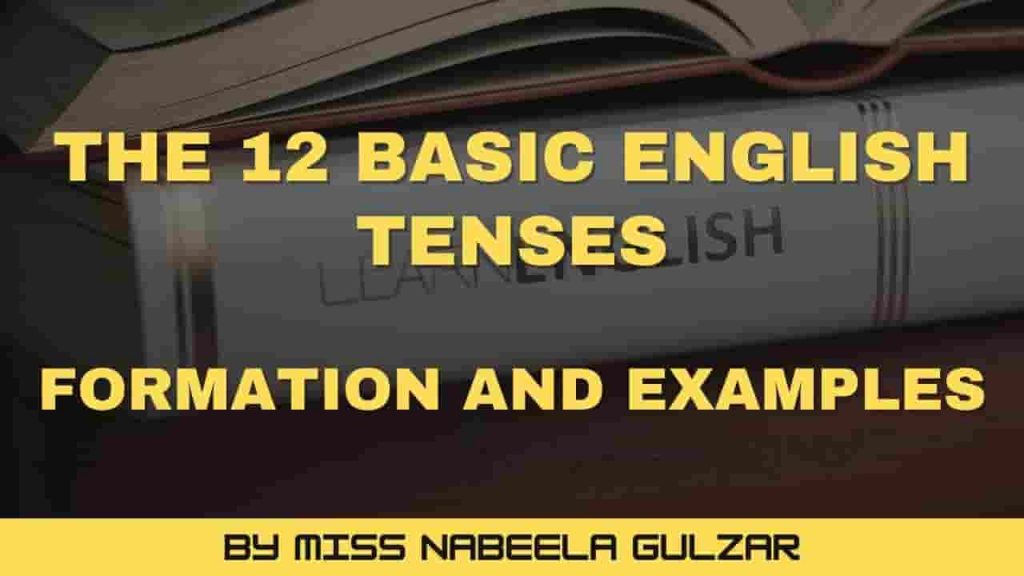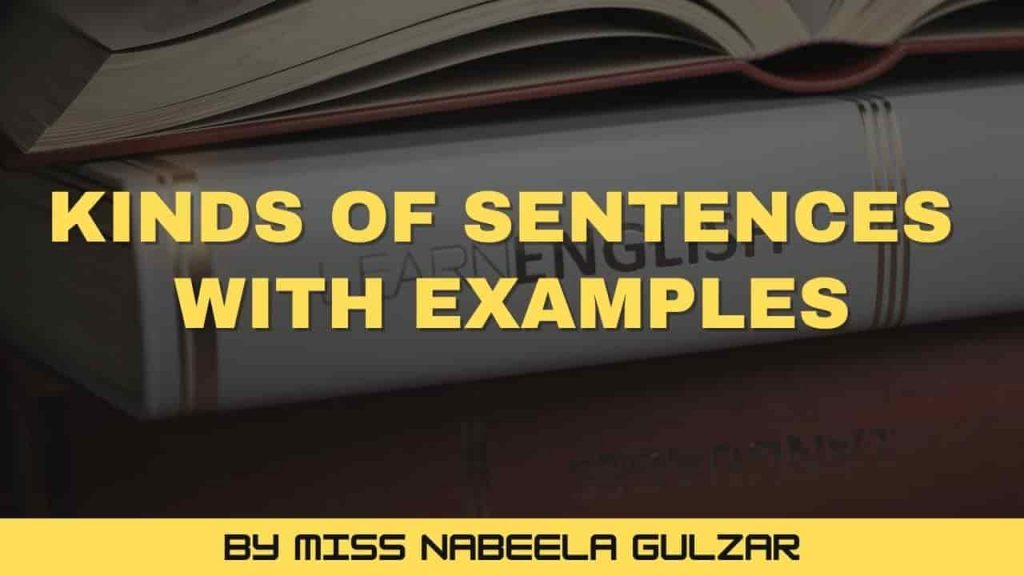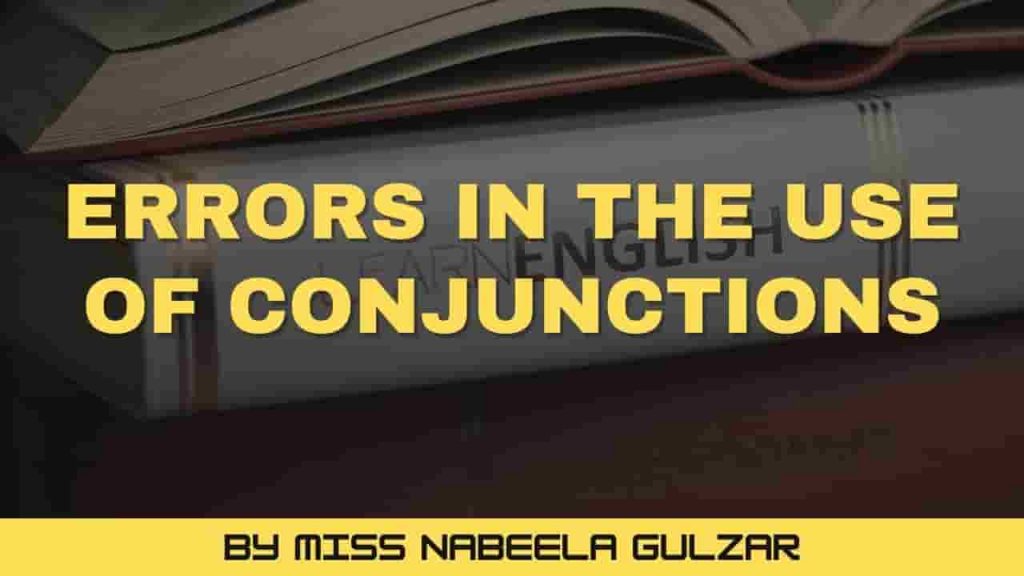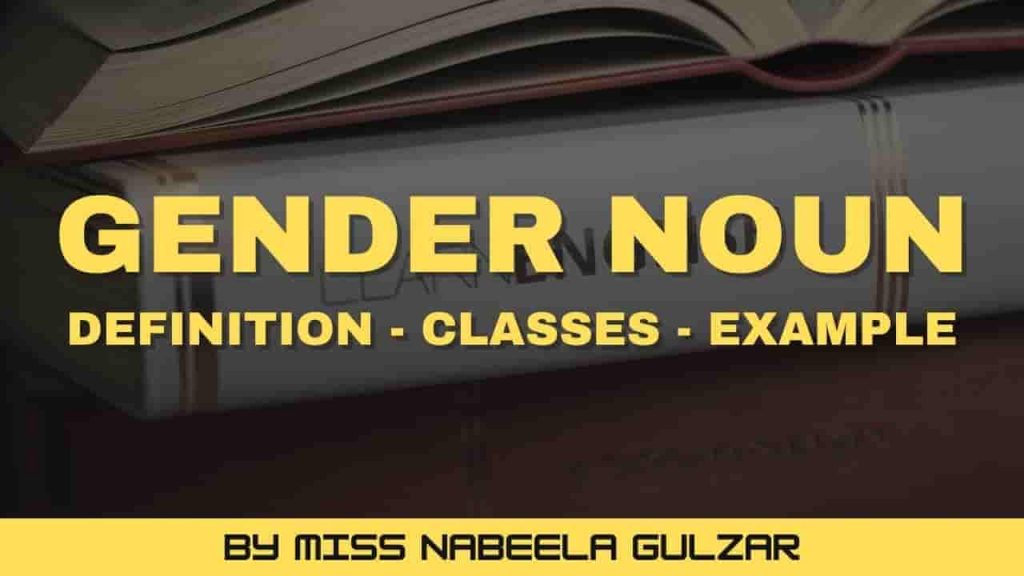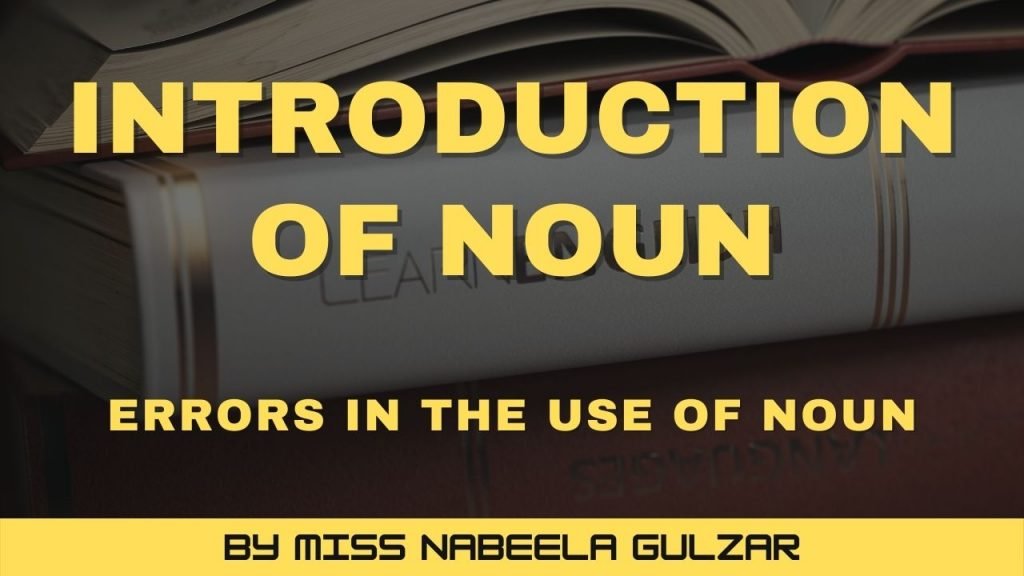12 Basic English Tenses with Formation and Examples
- 12 Basic English Tenses with Formation and Examples
- 1. Indefinite Tense
- 2. Continuous Tense
- 3. Perfect Tense
- 4. Perfect Continuous Tense
- Present Indefinite Tense
- How to Make a Sentence Formation
- Present Continuous Tense
- Present Perfect Tense
- Present Perfect Continuous Tense
- Past Indefinite Tense
- Past Continuous Tense
- Past Perfect Tense
- Past Perfect Continuous Tense
- Future Indefinite Tense
- Negative + Interrogative Sentences
- Future Continuous Tense
- Future Perfect Tense
The word “tense” is derived from the Latin word “Tempus”, which means “Time”. So it shows time or period.
There are three basic types of tenses.
1. Present
2. Past
3. Future
Each of the tenses has four further states.
1. Indefinite Tense
This is a state in which work is done but it is not clear that the work is continuing or has been completed.
2. Continuous Tense
This state tells whether the work is continuing or not.
3. Perfect Tense
This state tells whether the work is completed or not.
4. Perfect Continuous Tense
This state tells that a part of the work has been completed while the remaining is continuing.
There are complete details of these tenses mention below:
Present Indefinite Tense
The ‘present indefinite tense’ describes actions or the situations, at the present time.
This tense is used in the following situations.
i. To describe any event of the present time.
- He watches a play on T.V.
- He writes a story.
ii. To describe a habit.
- He takes tea daily.
- I go for a walk daily.
iii. To describe the natural phenomenon.
- The sun rises in the sun.
iv. To describe any universal truth.
- Honesty is the best policy.
Two and two make four.
v. To describe any innate requirement.
- The fish swim in the water.
- Bird fly in the air.
vi. In conditional sentences, the ‘Present Indefinite Tense is used with ‘Future Tense’.
- If it rains, he will go out.
vii. To narrate any past incident, as if it is happening in the present.
- The Holy Prophet enters Makkah with the Muslims and declared forgiveness for the enemies.
viii. To lay stress on some point ‘do’ or ‘does’ is used according to the subject.
- I do not speak the truth.
ix. In case of emphasizing Reality, certainty, indeed, etc, are used in negative and interrogative sentences.
- Certainly, I do not tell a lie.
- Indeed, my brothers do not hate me.
- Does he really speak the truth?
How to Make a Sentence Formation
Affirmative Sentences
(Subject +1st form of verb + s/es + object)
Note 1:
Subject: a person or thing performing an action in a sentence.
Verb: it expresses an action in a sentence.
object: a thing or person, the one who receives the action.
Note 2:
1. Add ‘s/es’ with the subjects (he, she, it, and single name)
Examples:
1. He plays.
(here ‘he’ is the subject and ‘plays’ is the verb. Here ‘s’ is used with the verb.)
2. She sings a song.
(here ‘she’ is subject and ‘sing+s’ is verb and song is object)
3. Najma cooks food.
(here ‘Najma’ is subject and ‘cook+s’ is verb and ‘food’ is object)
2. Don’t use s/es with the subject (I, we, you, they, and two names)
Examples:
1. Parrots talk.
2. I wear new clothes.
3. You buy new shoes.
Negative Sentences
Formation:
(Subject + do/does + not + 1st form of verb + object)
Note:
1. Use ‘does’ with the subjects (he, she, it,and single name)
2. Use ‘do’ with the subjects (I, we you, they and two names)
Examples:
1. You do not take tea daily.
(use ‘do’ with you)
2. He does not go to school.
(use ‘does’ with he, she, it)
3. They do not learn their lesson.
(use ‘do’ with they)
Interrogative Sentences
Formation:
(W/H family + Do/does + subject + 1st form of verb + object?)
Note:
1. W/H Family consists of interrogative pronouns such as:
1. What
2. Why
3. Where
4. When
5. Who
6. Which
7. Whom
8. Whose
9. How
10. How many
11. How much
2. The sentences which start from these words are followed by do/does in the present indefinite tense.
Examples:
1. Do you eat sweets daily?
2. Does the bird fly in the air?
3. Why do I read books?
(here ‘why’ is interrogative pronoun which is followed by ‘do’)
4. When does Ali speak the truth?
(here ‘when’ is interrogative pronoun which is followed by ‘do’)
Negative + Interrogative Sentences
Formation:
(W/H family + Do/Does + subject + not +1st form of verb + objects?)
Example:
1. Why do I not read a novel?
2. Does she not help the poor?
3. Why do you not show me the translation exercise?
4. Does he not admit his mistake?
Present Continuous Tense
The present continuous tense is a tense which describes an action that is ongoing at the present time.
- He is writing a letter.
- Time is passing away rapidly.
Affirmative Sentences
Formation:
(Subject +H.V(is/am/are) + 1st form of verb + ing + object)
Note:
1. H.V stands for; helping verb
2. Use ‘is’ with the subjects (he, she, it and single name)
3. Use ‘am’ with the subject (I)
4. Use ‘are’ with the subjects (we, you, they and plural names)
Example:
1. He is having breakfast.
(here ‘He’ is subject ‘is’ is helping verb ‘having’ is main verb and ‘breakfast’ is object)
2. I am learning my lesson.
(here ‘I’ is subject ‘am’ is helping verb ‘learning’ is main verb and ‘my lesson’ is object)
3. You are giving him a book.
(here ‘You’ is subject ‘are’ is helping verb ‘giving’ is main verb and ‘him’ is object)
4. Ali is writing a letter.
(here ‘Ali’ is subject ‘is’ is helping verb ‘writing’ is main verb and ‘letter’ is object)
Negative Sentences
Formation:
(Subject + h.v(is/am/are)+ not +1st form of verb + ing + object)
Examples:
1. She is not smiling.
2. Children are not catching butterflies.
3. I am not milking the goat.
4. It is not raining heavily.
Interrogative sentences
Formation:
(w.h family + h.v(is,am,are) + subject + 1st form of verb + ing + object)
Example:
1. Is the baby sleeping?
2. Why are the students coming back early from school?
(here ‘why’ is interrogative pronoun which is followed by ‘are’)
3. Are you selling your house?
4. Who is knocking at the door?
(here ‘who’ is interrogative pronoun which is followed by ‘is’)
Negative + interrogative sentences
Formation:
(W.h family + h.v(is,am,are) + subject not +1st form of verb + ing + object)
Examples:
1. Am I not addressing you?
2. Why is the plane not lending here?
(here ‘why’ is interrogative pronoun which is followed by ‘is’)
3. Is Bashir not buying a new motor cycle?
4. Why are you not selling your house?
(here ‘why’ is interrogative pronoun which is followed by ‘are’)
Present Perfect Tense
- I have done this work.
The ‘Present Perfect Tense’ is a tense that describes an action that has been completed at the present time.
- He has returned my book.
Affirmative Sentences:
Formation:
(Subject + has/have + 3rd form of verb + object )
Note:
1. Use ‘has’ with the subjects (he, she, it and single name)
2. Use ‘have’ with the subjects (I, we, you, they and two names)
Examples:
1. He has finished his work.
(here ‘He’ is subject ‘has’ is helping verb ‘finished’ is main verb and ‘his work’ is object)
2. I have passed the examination.
(here ‘I’ is subject ‘have’ is helping verb ‘passed’ is main verb and ‘the examination’ is object)
3. The principal has given away the certificates to the students.
(here ‘the principal’ is subject ‘has’ is helping verb ‘given away’ is main verb and ‘certificate’ is object)
4. The thieves have broken into the house.
(here ‘the thieves’ is subject ‘have’ is helping verb ‘broken into’ is main verb and ‘the house’ is object)
Negative Sentences
Formation:
(Subject + has/have + not + 3rd form of verb +object)
Examples:
1. We have not taken the tea.
2. The bridegroom has not put on new clothes.
3. The court has not considered the petition of the accused.
4. The successful candidates have not been awarded certificates.
Interrogative Sentences
Formation:
(W.h family + has/have + subject + 3rd form of verb + object?)
Examples:
1. Have they displayed fireworks on the occasion of marriage?
2. Where have the robbers robbed the rich man?
(here ‘where’ is interrogative pronoun which is followed by ‘have’)
3. Has he neglected his duty?
4. Why have you bought tickets for me?
(here ‘why’ is interrogative pronoun which is followed by ‘have’)
Negative + Interrogative Sentences
Formation:
(W.h family + has/have + subject + not + 3rd form of verb + object?)
Examples:
1. Why has the police not entered the building?
(here ‘why’ is interrogative pronoun which is followed by ‘has’)
2. Has he not taken revenge of his insult?
3. Why have they not completed their work?
(here ‘why’ is interrogative pronoun which is followed by ‘have’)
4. Has the patient not taken his medicine on time?
Present Perfect Continuous Tense
The ‘present perfect continuous tense is a tense that describes an action that began in the past and is still continuing.
- He has been living for five years.
- It has been raining here since morning.
Affirmative Sentences:
Formation:
(Subject + has/have + been + 1st form of verb + ing + object +since/for)
Note:
1. Use of “Since”
It refers to a particular point in time.
● With Days of the week (Monday, Tuesday, etc)
● With Month’s name (January, February, etc)
● With time (5 o’clock, 1 o’clock, etc)
● With date (2-2-2013, 29-12-1989, etc)
● With a period of time (today, yesterday, etc)
2. Use of “For“
‘For’ refers to an amount of time. It does not need to be an exact time. It is usually used when you are talking about a vague period of time. Such as: for hours, for months, for years, etc.
3. Use “has been” with the subjects (he, she, it, and singular noun)
4. Use “have been” with the subjects (I, we, they, you, and plural nouns)
Examples:
1. The players have been playing football since 4 o’clock.
(using since as there is an exact time, “4 o’clock”)
2. The miser has been saving every penny for five years.
(using for as there is a vague period of time, “five years”).
3. The people have been gathering to welcome the president since evening.
(using “since” as there is an exact time “evening”)
Negative Sentences:
Formation:
(subject + has/have + not + been + 1st form of verb + ing +object + since/for)
Examples:
1. The doctors have not been treating the patients for three days.
(using ‘for’ as there is a vague period of time, ‘three years’).
2. The lion has not been attacking the cattle since Monday.
(using ‘since’ as there is an exact time ‘Monday’)
3. He has not been exercising for two days.
(using ‘for’ as there is a vague period of time, ‘three years’)
Interrogative Sentences:
Formation:
(W.h family + has/have + subject + been + 1st form of verb + ing + object + since/for?)
Examples:
1. Why has Saad been taking medicine for three days?
(using ‘for’ as there is a vague period of time, “three days”)
2. Have the musicians been singing songs since Tuesday?
(using ‘since’ as there is an exact time “Tuesday”)
3. Have the police been joining the rally since 5 o’clock?
(using ‘since’ as there is an exact time “5 o’clock”)
Negative + Interrogative Sentences
Formation:
(W.h family + has/have + subject + not + 1st form of verb + ing + object + since/for?)
Examples:
1. Why have the shopkeepers not been decorating their shops for three days?
(using ‘for’ as there is a vague period of time, “three days”)
2. Have we not been believing in rumors since April?
(using ‘since’ as there is an exact time “April”)
3. Has Ali not been writing a new novel since 1982?
(using ‘since’ as there is an exact time “1982”)
Past Indefinite Tense
The passed time is called “Past Tense”.
This tense is used:
i. To describe any action, done in the past.
- The hunter killed two lions.
ii. To describe some habitual actions of the past.
- I used to eat breakfast daily.
iii. To describe the work, which was continued in the past.
- He worked while I played.
Affirmative Sentences
Formation:
(Subject + 2nd form of verb + object)
Examples:
1. You broke the glass.
(here ‘you’ is subject ‘broke’ is 2nd form of verb and ‘the glass’ is object)
2. We boarded the train.
(here ‘we’ is subject ‘boarded’ is 2nd form of verb and ‘the train’ is object)
3. The grandmother told us a strange story.
(here ‘the grandmother’ is subject, ‘told’ is 2nd form of verb and ‘us’ is object)
4. The dog chased the rabbit.
(here ‘the dog’ is subject, ‘chased’ is 2nd form of verb and ‘the rabbit’ is object)
Negative Sentences
Formation:
(Subject + did + not + 1st form of verb + object)
Note:
- “Did” is a helping verb that is used with every subject.
- Do not use the second form of the verb with ‘did’ in negative and interrogative sentences.
Examples:
1. You did not fulfill your promise.
2. The principal did not give away the prizes.
3. The wrestler did not knock out his opponent.
4. The people did not protest against this law.
Interrogative Sentences
Formation:
(W.h family + did + subject +1st form of verb + object?)
Note:
1. W/H Family consists of interrogative pronouns such as:
12. What
13. Why
14. Where
15. When
16. Who
17. Which
18. Whom
19. Whose
20. How
21. How many
22. How much
Examples:
1. Did your friends like this play?
2. Whom did the doctor inject?
3. Did the Magistrate catch him red-handed?
4. How did the laborers carry so much load?
Negative + Interrogative Sentences
Formation:
(W.h family + did + subject + not + 1st form of verb + object?)
Examples:
1. Why did the cobbler not mend my shoe?
(here ‘why’ is interrogative pronoun which is followed by ‘did’)
2. Did the officer not transfer his peon?
3. Why did they not stand by their friends?
(here ‘why’ is interrogative pronoun which is followed by ‘did’)
4. Did we not visit the historical places?
Past Continuous Tense
Past Continuous Tense is a tense that describes an action that was going on in the past.
- The teacher was punishing his student.
- It was raining in the mountains.
Affirmative Sentences
Formation:
(Subject + h.v(was/were) + 1st form of verb + ing + object)
Note:
1. Use “was” with the subjects (I, he, she, it and singular noun)
2. Use “were” with the subjects (you, we, they and plural nouns)
3. H.v stands for helping verbs.
Examples:
1. Some boys were collecting dry leaves.
(here ‘some boys’ is subject, ‘were’ is helping verb, ‘collecting’ is main verb and ‘dry leaves’ is object)
2. The man was selling his car.
(here ‘the man’ is subject, ‘was’ is helping verb’, ‘selling’ is main verb and ‘his car’ is object)
3. Children were making a noise.
(here ‘children’ is subject, ‘were’ is helping verb, ‘making’ is main verb and ‘a noise’ is predicate as it is not receiving any action)
4. People were flying kites.
(here ‘people’ is subject, ‘were’ is helping verb, ‘flying’ is main verb and ‘ kites’ is object)
Negative Sentences
Formation:
(Subject + was/were + not + 1st form of verb + ing + object)
Examples:
1. The rich man was not giving alms to the poors.
2. The government was not releasing him.
3. The boys were not singing songs.
4. The servant was not making false excuses.
Interrogative Sentences
Formation:
(W.h family + was/were + subject + 1st form of verb + ing + object?)
Examples:
1. Were both the players running after the ball?
2. Where was the lion drinking water?
(here ‘where’ is interrogative pronoun which is followed by ‘was’)
3. Who was garlanding the honourable guest?
(here ‘who’ is interrogative pronoun which is followed by ‘was’)
4. Were you combing your hair?
Negative + Interrogative Sentences
Formation:
(W.h family + was/were + subject + not + 1st form of verb + ing + object?)
Examples:
1. Was he not listening to his teacher attentively?
2. Why were the police not dispersing the rally?
(here ‘why’ is interrogative pronoun which is followed by ‘were’)
Past Perfect Tense
The past perfect tense is a tense that describes an action that was completed in the past. It is used to describe an action that was completed before the action took place. The first action will be in the past perfect and the next one in the past indefinite. For example:
- He had eaten the food before I came.
(here ‘he had eaten food’ is the first action and ‘I came’ is the second action and ‘before’ is an adverb)
Affirmative Sentences
Formation:
(Subject + had + 3rd form of verb + object + adverb + subject + 2nd form of the verb)
Note:
1. Use had plus the 3rd form of the verb in the first part.
2. Use the 2nd form of the verb in the second part of the sentence.
3. Use adverbs after the first part of the sentence.
4. If there is only one clause in past perfect tense then use adverb with had plus 3rd form of the verb.
Examples:
1. All the candidates had entered the examination hall before the paper began.
(here ‘all the candidates had entered the examination hall’ is the first action and ‘the paper began’ is the second action and ‘before’ is an adverb)
2. My brother had posted the letter of congratulation before I met him.
(here ‘my brother had posted the of congratulation’ is the first action and ‘I met him’ is the second action and ‘before’ is an adverb)
3. The girl had already sung the song.
(here ‘The girl’ is subject, ‘had’ is helping verb, ‘already’ is an adverb, ‘sung’ is main verb(3rd form) and ‘the song’ is object)
(note: this sentence has only one action that’s why an adverb is used here.)
4. He had learnt the lesson till yesterday.
(here ‘He’ is subject, ‘had’ is helping verb, ‘learnt’ is main verb(3rd form), ‘the lesson’ is object and ‘till yesterday’ is an adverb,)
(note: this sentence has only one action that’s why an adverb is used here.)
Negative Sentences
Formation:
(Subject + had + not + 3rd form of verb + + object + adverb + subject + 2nd form of the verb)
Examples:
1. He had not applied for the job yet.
2. He had not gone to school before you reached.
3. We had not seen such a wonderful sight before.
4. The sun had not set when I came out of the house.
Interrogative Sentences
Formation:
(W.h family + had + subject + 3rd form of verb + + object + adverb + subject + 2nd form of the verb?)
Examples:
1. Had they saved much money before they bought a car?
2. Had you already studied the history of Islam?
3. Why had the people caught the thief before the police came?
(here ‘why’ is interrogative pronoun which is followed by ‘had’)
4. Why had the people returned before the Caravan reached?
(here ‘why’ is interrogative pronoun which is followed by ‘had’)
Negative + Interrogative Sentences
Formation:
(W.h family + had + subject + not + 3rd form of verb + + object + adverb + subject + 2nd form of the verb?)
Examples:
1. Had the peon not rung the bell before I entered the school?
2. Why had the hunter not spread the net before the sunset?
(here ‘why’ is interrogative pronoun which is followed by ‘had’)
3. Had his father not died before he was born?
4. Why had I not heard such an interesting story before?
(here ‘why’ is interrogative pronoun which is followed by ‘had’)
Past Perfect Continuous Tense
The Past perfect continuous tense is also known as ‘past perfect progressive tense’. It shows an action that started in the past and continued up until another time in the past.
Formation:
(subject + had + been + 1st form of verb + ing + object + since/for.)
Note:
1. Use of “Since”
It refers to a particular point in time.
- With Days of week (monday, Tuesday, etc)
- With Months name (January, February, etc)
- With time (5 o’clock, 1 o’clock, etc)
- With date (2-2-2013, 29-12-1989, etc)
- With period of time (today, yesterday, etc)
2. Use of For
“For” refers to an amount of time. It does not need to be an exact time. It is usually used when you are talking about a vague period of time. Such as: for hours, for months, for years, etc.
Examples:
1. You had been preparing the speech since Tuesday.
(using ‘since’ as there is an exact time “Tuesday”)
2. The people had been putting out the fire for two hours.
(using ‘for’ as there is a vague period of time, “two hours”)
3. Jackals had been howling for twenty minutes.
(using ‘for’ as there is a vague period of time, “twenty minutes”)
4. The watchmaker had been repairing my watch since 11 o’clock.
(using ‘since’ as there is an exact time “11 o’clock”)
Negative Sentences
Formation:
(Subject + had + not + been + 1st form of verb + ing + object + since/for.)
Examples:
1. The boatman had not been rowing the boat for three hours.
(using ‘for’ as there is a vague period of time, “three hours”)
2. It had not been raining in the desert since 1992.
(using ‘since’ as there is an exact time “1992”)
3. The boy had not been wasting his time since November.
(using ‘since’ as there is an exact time “November”)
4. The students had not been attending the school for the last several days.
(using ‘for’ as there is a vague period of time, “several days”)
Interrogative Sentences
Formation:
(W.h family + had + subject + been + 1st form of verb + ing + object + since/for?)
Examples:
1. Why had the girl been weeping since 1 o’clock?
(using ‘since’ as there is an exact time “1 o’clock”)
2. Had he been smelling the flowers for ten minutes?
(using ‘for’ as there is a vague period of time, “ten minutes”)
3. Where had they been buying the treasure since 1987?
(using ‘since’ as there is an exact time “1987”)
4. Had his brother been serving in this office for five months?
(using ‘for’ as there is a vague period of time, ‘five months’)
Negative + Interrogative Sentences
Formation:
(W.h family + had + subject + been + 1st form of verb + ing + object + since/for?)
Examples:
1. Had you not been enjoying snowfall for two days?
(using ‘for’ as there is a vague period of time, ‘two days’)
2. Why had the people not been clapping since morning?
(using ‘since’ as there is an exact time ‘morning’)
3. For how much time had the peon not ringing the bell?
(using ‘for’ as there is a vague period of time, ‘how much’)
4. Had he not been standing along the roadside since 9 o’clock?
(using ‘since’ as there is an exact time ‘9 o’clock’)
Future Indefinite Tense
Future Indefinite Tense is a tense that describes an action of the upcoming time. This tense is also used in Conditional sentences with present indefinite tense.
As:
If he works hard, he will pass the examination.
Affirmative Sentences
Formation:
(Subject + will/shall +1st form of the verb + object)
Note:
1. Use ‘will’ with the subjects (you, he, she, it, they, singular/plural nouns)
2. Use ‘shall’ with the subjects
(I and we)
3. If there is a stress of any kind in the sentence, use ‘will’ with the subjects (I and we) and ‘shall’ with (you, he, she, it, they and singular/ plural nouns)
Examples:
1. We shall play cricket
(here ‘we’ is the subject, ‘shall’ is helping verbs, ‘play’ is the verb(1st form) and ‘cricket’ is object)
2. The peon will ring the bell.
(here ‘the peon’ is the subject, ‘will’ is helping verbs, ‘ring’ is the verb(1st form) and ‘the bell’ is object)
3. He shall pass the examination.
(here ‘he’ is the subject, ‘shall’ is helping verbs, ‘pass’ is the verb(1st form) and ‘the examination’ is object)
(here ‘shall’ is used as there is stress in this sentence)
4. We will obey our parents.
(here ‘we’ is the subject, ‘shall’ is helping verbs, ‘obey’ is the verb(1st form) and ‘our parents’ is object)
(here ‘will’ is used as there is stress in this sentence)
Conditional Sentences
Formation:
(If + present tense + future indefinite)
Examples:
1. If you work hard you will pass the examination.
2. If you are honest, we will help you.
3. If the farmer sells all his kiwi-fruit in the market, he will be very pleased.
4. If I go out, I shall turn off the television.
Negative Sentences
Formation:
(Subject + will/shall + not + 1st form of the verb + object)
Examples:
1. The clerk will not come to the office in time.
2. The servant will not post the letter.
3. The enemy will not win the war.
4. The headmaster will not punish the naughty boy.
Interrogative Sentences
Formation:
(W.h family + will/shall + subject +1st form of the verb + object?)
Note:
1. W/H Family consists of interrogative pronouns such as:
23. What
24. Why
25. Where
26. When
27. Who
28. Which
29. Whom
30. Whose
31. How
32. How many
33. How much
Examples:
1. Who will face the danger for you?
(here ‘who’ is interrogative pronoun which is followed by ‘will’)
2. Will the passengers miss the train?
3. When will the snow melt on the mountains?
(here ‘when’ is interrogative pronoun which is followed by ‘will’)
4. Shall I oppose you?
Negative + Interrogative Sentences
Formation:
(W.h family + will/shall + subject + not + 1st form of the verb + object?)
Examples:
1. Why will you not hire a taxi?
(here ‘why’ is interrogative pronoun which is followed by ‘will’)
2. Will the boys not remember this incident?
3. Will you not preach Islam?
4. Why will you not offer fruit to the guests?
(here ‘why’ is interrogative pronoun which is followed by ‘will’)
Future Continuous Tense
Future continuous tense is a tense which describes an action that has to be continued for some time in the future.
As:
- He will be going to the market to buy fruits.
- She will be stitching her dress.
Affirmative Sentences
Formation:
(Subject + will/shall + be + 1st form of the verb + ing + object)
Note:
1. Use ‘will be’ with the subjects (you, he, she, it, they, singular/plural nouns)
2. Use ‘shall be’ with the subjects
(I and we)
Examples:
1. The children will be learning tables by heart.
(here ‘the children’ is the subject, ‘will be’ is helping verbs, ‘learning’ is the verb(1st form)+ing and ‘tables’ is object)
2. The dogs will be fighting over the bone.
(here ‘the dogs’ is the subject, ‘will be’ is helping verbs, ‘fighting’ is the verb(1st form)+ing and ‘the bone’ is object)
3. I shall be taking part in the drama.
(here ‘I’ is the subject, ‘shall be’ is helping verbs, ‘taking’ is the verb(1st form)+ing and ‘drama’ is object)
4. The president of the meeting will be delivering the speech.
(here ‘the president’ is the subject, ‘will be’ is helping verbs, ‘delivering’ is the verb(1st form)+ing and ‘the speech’ is object)
Negative Sentences
Formation:
(Subject + will/shall + not + be + 1st form of the verb + ing + object)
Examples:
1. The lame person will not be riding the horse.
2. He will not be praying now.
3. The butcher man will not be sharpening the knife.
4. You will not be laughing at the poor.
Interrogative Sentences
Formation:
(W.h family + will/shall + subject + be + 1st form of the verb + ing + object?)
Examples:
1. Where will the woman be singing the song?
(here ‘where’ is interrogative pronoun which is followed by ‘will’)
2. Will I be demounting from the horse?
3. How will the army be defending the country?
(here ‘how’ is interrogative pronoun which is followed by ‘will’)
4. Whom will he be telling the secret to?
(here ‘whom’ is interrogative pronoun which is followed by ‘will’)
Negative + Interrogative Sentences
Formation:
(W.h family + will/shall + subject + not + be + 1st form of the verb + ing + object?)
Examples:
1. Why will you not be reading their letter?
(here ‘why’ is interrogative pronoun which is followed by ‘will’)
2. Will the passengers not be reaching home?
3. Will the girls not be working on the spinning wheel?
4. Why will the children not be weeping?
(here ‘why’ is interrogative pronoun which is followed by ‘will’)
Future Perfect Tense
The future perfect tense is used for the description of that work, which has to be finished at some time in the future. There are two tasks used in this tense. The first part will be in the future perfect and the second part will be in the present indefinite tense. As.
- The teacher will have called the roll before I reach.
(The first part is in future perfect and second is in present tense)
Affirmative Sentences
Formation:
1. (Subject + will/shall + have + 3rd form of the verb + object + adverb + subject + 1st form of verb.)
2. (Subject + will/shall + have + 3rd form of the verb + object.)
Note:
1. If two clauses are used in a sentence then use the following pattern.
- Use will/shall have plus 3rd form of the verb in the first part.
- Use the 1st form of the verb in the second part of the sentence.
- Use adverbs after the first part of the sentence.
Examples:
1. Rabbits will have hidden themselves in the forest.
(here ‘rabbits’ is the subject, ‘will have’ is helping verbs, ‘hidden’ is the verb(3rd form) and ‘themselves’ is object)
2. I shall have taken a walk by seven o’clock.
(here ‘I’ is the subject, ‘shall have’ is helping verbs, ‘taken’ is the verb(3rd form) and ‘a walk’ is object)
3. We shall have completed our work before the sun sets
(here are two clauses one is in future perfect and the second one is in present tense)
4. The boys will have learned their lessons before the teachers come.
(here are two clauses one is in future perfect and the second one is in present tense)
Negative Sentences
Formation:
1. (Subject + will/shall + not + have + 3rd form of the verb + object + adverb + subject + 1st form of verb.)
2. (Subject + will/shall + not + have + 3rd form of the verb + object.)
Examples:
1. They will not have eaten the mango.
2. He will not have died before the doctor comes.
3. The headmaster will not have forgiven the students.
4. The enemy will not have surrendered before the police come.
Interrogative Sentences
Formation:
1. (W.h family + will/shall + subject + have + 3rd form of the verb + object + adverb + subject + 1st form of verb.)
2. (W.h family + will/shall + subject + have + 3rd form of the verb + object.)
Examples:
1. Will all the birds have flown?
2. Why will they have left their work incomplete?
(here ‘why’ is interrogative pronoun which is followed by ‘will’)
3. When will he have posted this letter?
(here ‘when’ is interrogative pronoun which is followed by ‘will’)
4. Will the women have liked this song?
Negative + Interrogative Sentences
Formation:
1. (W.h family + will/shall + subject + have + not + 3rd form of the verb + object + adverb + subject + 1st form of verb.)
2. (W.h family + will/shall + subject + have + not + 3rd form of the verb + object.)
Examples:
1. Will the laborers have not whitewashed the school?
2. Who will not have thrown stones at the van?
(here ‘who’ is interrogative pronoun which is followed by ‘will’)
Future Perfect Continuous Tense
Future Perfect Continuous Tense is a tense that describes an action that has been going on continuously and has yet to be completed in the future.
Affirmative Sentences
Formation:
(Subject + will/shall + have + been + 1st form of the verb + ing + object + since/for.)
Note:
1. Use “will have been” with the subjects (you, he, she, it, they, singular/plural nouns)
2. Use “shall have been” with the subjects (I and we)
Note 2:
1. Use of Since”
It refers to a particular point in time.
- With Days of week (monday, Tuesday, etc)
- With Months name (January, February, etc)
- With time (5 o’clock, 1 o’clock, etc)
- With date (2-2-2013, 29-12-1989, etc)
- With period of time (today, yesterday, etc)
2. Use of For
“For” refers to an amount of time. It does not need to be an exact time. It is usually used when you are talking about a vague period of time. Such as: for hours, for months, for years, etc.
Examples:
1. The fisherman will have been catching fish for four days.
(using ‘for’ as there is a vague period of time, “four days”)
2. You will have been getting flour from the depot for half an hour.
(using ‘for’ as there is a vague period of time, “an hour”)
3. I shall have been going to school since September.
(using ‘since’ as there is an exact time “September”)
4. The girls will have been knitting sweaters since 1985.
(using ‘since’ as there is an exact time “1985”)
Negative Sentences
Formation:
(Subject + will/shall + not + have + been + 1st form of the verb + ing + object + since/for.)
Examples:
1. The dirty boy will not have been taking a bath for several days.
(using ‘for’ as there is a vague period of time, ‘several days’)
2. You will not have been paying rent of this house since July.
(using ‘since’ as there is an exact time ‘July)
3. The spectators will not have been taking interest in the play for an hour.
(using ‘for’ as there is a vague period of time, ‘an hour’)
4. People will not have been reading newspapers since last year.
Interrogative Sentences
Formation:
(W.h family + will/shall + subject + have + been + 1st form of the verb + ing + object + since/for?)
Examples:
1. Why will the students have been raining slogans against the police since morning?
(using ‘since’ as there is an exact time ‘morning’)
2. Will the father have been patting his son’s head for ten years?
(using ‘for’ as there is a vague period of time, “ten years”)
3. Where will the woodcutter have been searching for his axe for three days?
(using ‘for’ as there is a vague period of time, “three days”)
4. Whose pictures will the painters have been drawing since November?
(using ‘since’ as there is an exact time “November”)
Negative + Interrogative Sentences
Formation:
(W.h family + will/shall + subject + not + have + been + 1st form of the verb + ing + object + since/for?)
Examples:
1. Why will they not have been eating fruit since morning?
(using ‘since’ as there is an exact time “morning”)
2. Will your uncle not have been waiting for you since yesterday?
(using ‘since’ as there is an exact time “yesterday”)
3. Why will the king not have been roaming in the street of the city since night.
(using ‘since’ as there is an exact time “night”)
4. Will the scholar not have been translating this book for ten years?
(using ‘for’ as there is a vague period of time, “ten years”?)
Hopefully, your concept about Tenses is clear now, This lecture is part of the whole series of English Grammar by Miss Nabila Gulzar, For Other Lectures Click Here also We have an Essay on every topic, Check the complete list here. If you are Studying in Matric Free Video Lectures of Maths, Physics and English are here, and we have got you covered for I.COM Business Maths also.

